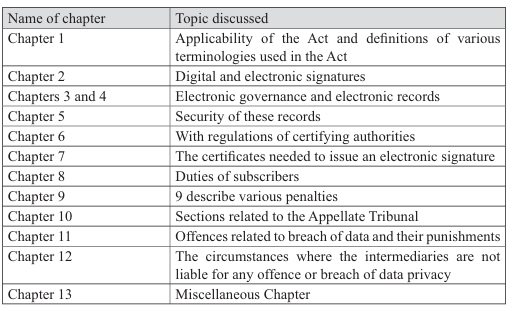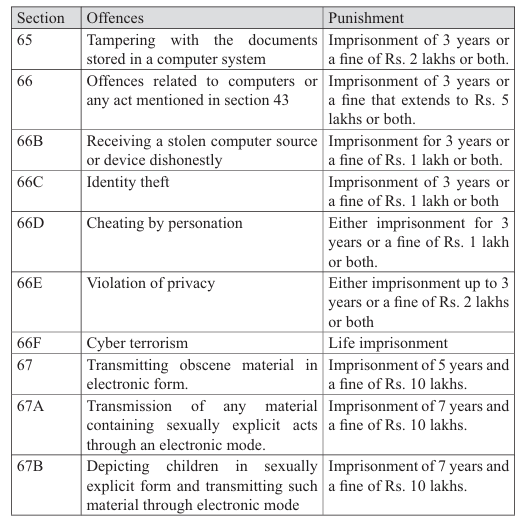Current Legislations Regarding Cyber Security in India
Current Legislations Regarding Cybersecurity in India
India has implemented several legislations to address the growing concerns of cybersecurity. These laws aim to regulate online activities, define cybercrimes, and provide a framework for protecting digital information.
Here are the key legislations:
- The Information Technology Act, 2000
- Amendment of 2008
- The 2015 Amendment
- Information Technology (Intermediaries Guidelines and Digital Media Ethics Code) Rules, 2021
1. The Information Technology Act, 2000
This foundational act defines various cybercrimes and regulates social media activities. It was enacted to address the increasing incidence of cybercrimes due to growing internet usage.

- Definitions: Section 2(1) defines key terms like cyber cafes, data, and digital signatures.
- Authentication and Digital Signatures: Recognizes methods of authentication and digital signatures.
- Valid Online Transactions: Section 10A validates online transactions and contracts.
- Appellate Tribunal: Establishes provisions for an appellate tribunal to resolve disputes.
- Compensation for Unauthorized Use: Section 43 mandates compensation for unauthorized system use or damage.
-
Offences and Punishments: The Act outlines various cyber offences and their corresponding punishments:

2. Amendment of 2008
This amendment introduced Section 66A, which penalized sending offensive messages through electronic devices. While later struck down by the supreme court due to freedom of speech concerns, it's introduction shows the intent to handle misuse of online communication.
- Punished offensive messages with up to 3 years imprisonment and a fine.
- An extension of the IT Act, 2000, to protect citizens and cyber infrastructure.
3. The 2015 Amendment
This amendment, which became operational in 2016, focused on enabling non-federal entities to share cyber threat indicators with the Federal Government. It also introduced policies and procedures for receiving and using these indicators.
- Facilitated cyber threat information sharing.
- Released guidance for government and entity interactions.
4. Information Technology (Intermediaries Guidelines and Digital Media Ethics Code) Rules, 2021
Enacted in February 2021, these rules regulate OTT platforms and social media. They establish complaint mechanisms for users, especially for protecting women and children from online sexual offences.

No Comments